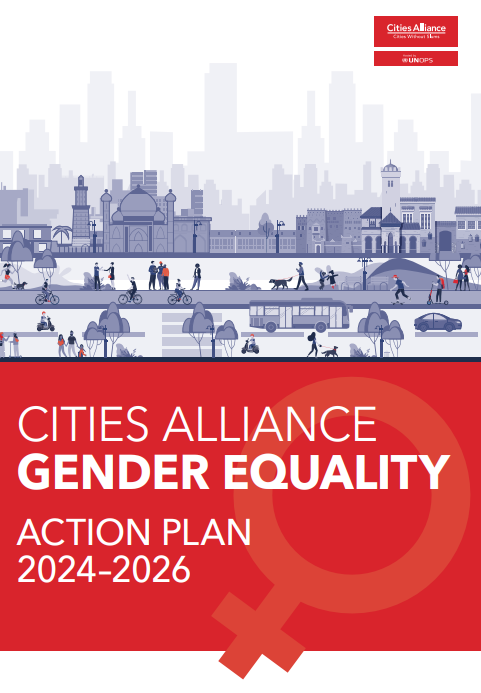Gender Equality Action Plan

The Cities Alliance Gender Equality Action Plan (GEAP) 2024–2026 serves as a guiding framework for integrating gender equality and women’s empowerment into all facets of the organisation’s activities at local, regional, and global levels. Aligned with the Cities Alliance Strategic Plan, the GEAP builds upon previous initiatives and strategies, focusing on four key recommendations:
- Continuously consolidating an evidence base to underscore gender-focused endeavours.
- Expanding targeted gender initiatives in priority countries by fostering collaboration with members and local partners.
- Enhancing transparent communication of engagement efforts, particularly to Cities Alliance members.
- Sustaining improvement in mainstreaming through specialised training and a consistent monitoring framework.
Cities Alliance's commitment to addressing and diminishing inequalities in developing cities is pivotal for achieving inclusive urban development. Recognising gender as a central axis of inequality, discrimination, and exclusion in urban settings underscores the urgency of integrating women’s perspectives into city planning and governance. Moreover, such inclusion not only amplifies the understanding of urban challenges but also facilitates the recognition and resolution of the specific issues faced by other marginalised social groups. Effective pro-poor interventions necessitate a nuanced approach, incorporating intersectional considerations that encompass gender as well as factors such as age, ethnicity, economic status, and sexual orientation.
Abstract based on source.


Comments